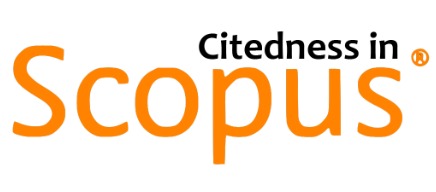Strategi Penilaian Sikap Toleransi Mahasiswa dengan Mengintegrasikan Teknik Pete Ward dalam Pendidikan Teologi Berbasis Moderasi Beragama
Keywords:
Education, Multicultural Theology, Religious Moderation, Liquid EcclesiologyAbstract
Multicultural theological education based on religious moderation is crucial in building a tolerant attitude among students. This study aims to develop an assessment of tolerance attitudes through the Liquid Ecclesiology approach proposed by Pete Ward. The methodology combines empirical methods based on concrete religious experience and theology. The multicultural theological education guide studied has five key elements: contemplation, reflection, construction, drafting proposals, and examining actions. This research was conducted at the State University of Jakarta and STAI DR. KH. EZ. Muttaqien focuses on Islamic theology courses for Islamic Religious Education study program students. The study results have produced a model of learning assessment instruments in Islamic Theology courses that include a commitment to nationality, rejection of violence, tolerance attitudes, and acceptance of local traditions to strengthen the spirit of tolerance in religious diversity for students.
References
Andar Gunawan Pasaribu. (2023). Peran Pendidikan Teologi Berbingkai Moderasi Beragama Dalam Pengembangan Sikap Toleransi Mahasiswa. Hartati: Jurnal Pendidikan Kristen, 3(1), 11–24.
Ayu Dwi Nindyati. (2017). Pemakanaan Loyalitas Karyawan Pada Generasi X Dan Generasi Y (Studi Pada Karyawan Di Indonesia. Journal of Psychological Science and Profesion (JPSP), 1(3), 5–5.
Edi Hendri Mulyana, Ghullam Hamdu, & Fitri Nurzakiah F. (2016). Pengembangan Penilaian Sikap dengan Menggunakan Analisis Video Pelaksanaan Pembelajaran Berbasis Konteks. Prosiding Seminar Nasional Pendidikan Sains (SNPS), 1(1), 367–379.
Eka Darmaputra. (1991). Kemungkinan Kecenderungan Masyarakat Majemuk Indonesia Dalam Kurun Pembangunan Nasional Jangka Panjang 25 Tahun Kedua. Seminar Nasional.
Evans Dusep Dongoran et Al. (2020). Mananamkan Sikap Moderasi Beragama Melalui Pendidikan Agama Kristen Di SMAN 1 Bintan Timur. REAL COSTER:,†Jurnal Pengabdian Kepada Masyarakat, 3(1), 7–11.
Ezra Tari. (2022). Mengembangkan Moderasi Beragama Di Kalangan Generasi Milenial Melalui Perspektif Perjanjian Baru. Kurios, 8(1), 114–123.
Franky, D. E. L. (2022). Model Liquid Church Bagi Peningkatan Pelayanan Pastoral Gereja-Gereja Anggota Persekutuan Gereja-Gereja Di Indonesia Setempat (PGIS) Di Kota Batu. Missio Ecclesiae, 11(1), 21–36.
J. E. Raranta. (2022). Pendidikan Kristiani Berbasis Multikultural Dalam Konteks Moderasi Beragama. JURNAL TERUNA BHAKTI, 3(1), 170–170.
John S Bruba. (1962). Modern Phylosophies of Education. Kugakusha Company Ltd.
John S. Brubacher. (1958). Modern Filoshofis of Education in Cultural Perspective. The Dryden Press.
Kadek Hengki Primayana, & Putu Yulia Angga Dewi. (2021). Manajemen Pendidikan Dalam Moderasi Beragama Di Era Disrupsi Digital. Ilmu Agama Dan Budaya Hindu, 10(1), 46–46.
Karel A. Steenbrink. (1986). Pesantren, Madrasah dan Sekolah, Pendidikan Islam Dalam Kurun Modern. LP3ES.
M. Sobri. (2017). Pendidikan Multikultural Sebagai Upaya Preventif Terjadinya Konflik Sosial di Masyarakat Majemuk. El Hakim, 10(1), 94–111.
Merensiana Hale, T. K. C. L. C. E. (2024). Eklesiologi Intergenerasional. Dunamis: Jurnal Teologi Dan Pendidikan Kristiani, 9(1).
Mohammed Arkoun (Terj, ) Yudian W. Asmin dan Lathiful Khuluq. (1996). Rethinking Islam. Pustaka Pelajar.
Ngainun Naim and others. (2017). Pendidikan Multikultural, Konsep dan Aplikasi. Ar-Ruzz Media .
Pete Ward. (2017). Liquid Ecclesiolgy: The Gospel and The Church. Brill, Boston .
Rupert C. Lodge. (1974). Phylosophy of Education. Harer & Brothers.
Slamet Makhsun. (2021, November 1). Maraknya Kekerasan Antar Umat Beragama, HMPS SAA UIN Jogja Adakan Dialog Lintas Iman. UIN Sunan Kalijaga Yogyakarta.
Stella Y.E. Pattipeilohy. (2020). Pendidikan Teologi Multikultur: Sebuah Sumbangan Pete Ward. Dunamis: Jurnal Teologi Dan Pendidikan Kristiani, 5(1), 131–154.
Supriatno. (2009). Merentang Sejarah Memaknai Kemandirian. BPK Gunung Mulia.
Tim Kementerian Agama RI. (2019). Moderasi Beragama. Badan Litbang dan Diklat Kementerian Agama RI.
Tobroni. (2008). Pendidikan Islam, Paradigma Teologis, Filosofis dan Spiritual. UMM Press.
Tunggul Yulianto Helen Farida Latif, J. M. T. P. (2022). Refleksi Galatia 5:14 Tentang Moderasi Beragama: Sebuah Keniscayaan Dalam Merajut Kembali Kesatuan Bangsa. Jurnal Teologi Gracia Deo, 5(1), 63–63.
Published
How to Cite
Issue
Section
Copyright (c) 2025 Muhamad Ridwan Effendi, Surya Hadi Darma, Sa'dullah Sa'dullah, Izzatul Mardhiah, Salma Azzahra

This work is licensed under a Creative Commons Attribution-ShareAlike 4.0 International License.
Copyright and Licensing Policy
Paedagogie: Jurnal Pendidikan dan Studi Islam allows authors to retain the copyright of their work and to retain publishing rights. By submitting and publishing with this journal, authors agree to the following terms:
-
Copyright remains with the author(s), and they grant the journal the right of first publication. The work is published under a Creative Commons Attribution-ShareAlike 4.0 International License (CC BY-SA 4.0), which permits use, distribution, and reproduction in any medium, provided the original work is properly cited and any derivative works are distributed under the same license.
-
Authors are allowed to enter into additional non-exclusive distribution agreements (e.g., posting to institutional repositories, publishing in books), with acknowledgment of the work's initial publication in this journal.
-
Authors are encouraged to disseminate their work online (e.g., in repositories or on personal websites) before and during the submission process to increase visibility and impact.
Paedagogie: Jurnal Pendidikan dan Studi Islam supports open access and affirms that libre access with a CC BY-SA license or its equivalent is the optimal approach for scholarly communication. We prioritize free and open dissemination while encouraging the reuse and adaptation of published content under fair and equitable terms.
You are free to:
- Share — copy and redistribute the material in any medium or format
- Adapt — remix, transform, and build upon the material for any purpose, even commercially.
- The licensor cannot revoke these freedoms as long as you follow the license terms.















